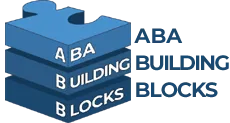Navigating the intricate landscape of autism spectrum disorder (ASD) often requires a bespoke approach. Amidst a plethora of intervention strategies, the concept of “Customized Support” emerges as a beacon of hope. This paradigm recognizes the diverse needs and unique traits of individuals with ASD, advocating for tailored interventions that align with their specific behaviors and challenges. In this blog series, we delve into the art and science of crafting personalized behavior interventions for individuals on the spectrum. From understanding core characteristics to implementing evidence-based techniques, we explore how customization fosters success and empowers individuals with ASD to thrive in their environments. Join us on this journey of discovery and transformation.
Identifying Unique Traits and Challenges
Understanding the intricacies of autism spectrum disorder (ASD) entails recognizing the diverse spectrum of traits and challenges present in each individual. From social communication difficulties to sensory sensitivities and repetitive behaviors, each person with ASD exhibits a unique combination of characteristics. Identifying these specific traits is crucial in tailoring effective behavior interventions that address individual needs comprehensively. By delving deep into the nuances of each individual’s behavior patterns and challenges, professionals and caregivers can gain valuable insights into the underlying factors driving behaviors, paving the way for more targeted and personalized support strategies.
Personalized Assessment Approaches: Tools for Tailoring Intervention Strategies
Personalized assessment approaches serve as indispensable tools in the process of tailoring intervention strategies for individuals with autism spectrum disorder (ASD). These assessments delve deep into an individual’s unique traits, preferences, and challenges, guiding the development of targeted and effective support plans. Here are six key components of personalized assessment approaches:
- Comprehensive Functional Behavior Assessment (FBA): FBA identifies the antecedents, behaviors, and consequences of specific actions, providing insights into the functions and triggers of behaviors exhibited by individuals with ASD. Through systematic observation and analysis, FBA informs the development of behavior intervention plans tailored to address underlying needs.
- Sensory Profile Evaluation: Sensory profiles assess an individual’s sensory processing patterns, identifying sensitivities, aversions, or seeking behaviors related to sensory input. By understanding an individual’s sensory preferences and sensitivities, intervention strategies can be tailored to create supportive environments that minimize sensory overload and promote comfort and engagement.
- Communication Assessment: Communication assessments evaluate an individual’s expressive and receptive language skills, as well as their use of alternative communication methods such as augmentative and alternative communication (AAC) systems. These assessments inform the selection of communication strategies and supports that align with the individual’s communication strengths and challenges, facilitating effective interaction and expression.
- Social Skills Inventory: Social skills inventories assess an individual’s social communication abilities, including skills related to initiating and maintaining social interactions, understanding nonverbal cues, and perspective-taking. By identifying areas of strength and areas for improvement, social skills assessments guide the development of targeted interventions that enhance social competence and peer relationships.
- Executive Function Assessment: Executive function assessments evaluate an individual’s cognitive processes related to organization, planning, problem-solving, and self-regulation. These assessments provide insights into the individual’s executive function strengths and weaknesses, informing the selection of strategies and supports that promote independence, self-management, and academic success.
- Strengths-Based Assessment: Strengths-based assessment approaches focus on identifying and leveraging an individual’s strengths, interests, and talents to support their development and well-being. By recognizing and building upon existing strengths, interventions can capitalize on intrinsic motivation, foster resilience, and promote positive outcomes across various domains of functioning.
Incorporating these diverse assessment approaches into the intervention process ensures that support plans are tailored to address the specific needs, preferences, and strengths of individuals with ASD, maximizing the potential for success and enhancing overall quality of life.
Flexibility in Implementation: Adapting Interventions to Evolving Needs
Flexibility in implementation is essential when tailoring behavior interventions for individuals with autism spectrum disorder (ASD), as their needs and challenges may evolve over time. Effective intervention plans are dynamic and responsive, allowing for ongoing assessment and adjustment to accommodate changes in the individual’s behavior, environment, or circumstances. By maintaining open communication channels and regularly monitoring progress, professionals and caregivers can identify areas for adaptation and modification, ensuring that interventions remain aligned with the individual’s evolving needs and goals. This adaptive approach fosters resilience and promotes sustained progress towards success.
Building a Customized Intervention Plan: Strategies and Techniques
Building a customized intervention plan is a meticulous process that requires careful consideration of an individual’s unique needs, strengths, and challenges. By drawing from a diverse array of strategies and techniques, professionals and caregivers can develop comprehensive support plans tailored to address specific goals and promote positive outcomes for individuals with autism spectrum disorder (ASD). Here are five key components of effective customized intervention plans:
- Goal Setting and Prioritization: Establishing clear, measurable goals is essential for guiding the intervention process and tracking progress over time. By collaboratively setting goals with the individual and their support team, intervention plans can prioritize areas of focus and ensure that interventions are aligned with the individual’s aspirations and needs.
- Applied Behavior Analysis (ABA): ABA is a highly individualized approach to intervention that focuses on identifying and modifying behaviors through systematic observation, analysis, and reinforcement. By breaking down complex behaviors into manageable components and implementing targeted interventions, ABA helps individuals acquire new skills, reduce problem behaviors, and improve overall functioning.
- Visual Supports and Structured Routines: Visual supports, such as visual schedules, social stories, and visual cues, provide individuals with ASD with concrete, predictable frameworks for understanding expectations and navigating daily routines. By incorporating visual support into intervention plans, individuals can enhance their comprehension, communication, and independence in various settings.
- Sensory Integration Techniques: Sensory integration techniques aim to address sensory processing difficulties commonly experienced by individuals with ASD, such as hypersensitivity or hyposensitivity to sensory stimuli. By incorporating sensory-friendly environments, sensory breaks, and sensory-based activities into intervention plans, individuals can regulate their sensory experiences and participate more fully in daily activities.
- Social Skills Training and Peer Interaction: Social skills training focuses on teaching individuals with ASD essential social communication and interaction skills, such as initiating conversations, interpreting social cues, and building friendships. By providing opportunities for structured social interactions, peer modeling, and feedback, intervention plans can help individuals develop meaningful connections and navigate social situations more effectively.
Incorporating these diverse strategies and techniques into customized intervention plans ensures that support is tailored to address the specific needs, preferences, and strengths of individuals with ASD, fostering meaningful progress and enhancing overall quality of life.
Collaborative Approaches: Engaging Families and Caregivers in Tailored Support
Collaborative approaches emphasize the importance of engaging families and caregivers as active partners in the process of tailoring support for individuals with autism spectrum disorder (ASD). Recognizing that family members possess invaluable insights into the individual’s strengths, preferences, and challenges, professionals work collaboratively with them to develop and implement personalized intervention plans. By fostering open dialogue, sharing expertise, and incorporating family priorities and goals, collaborative approaches harness the collective efforts of a multidisciplinary team to provide comprehensive and cohesive support that extends beyond clinical settings into the individual’s everyday life.
Measuring Success: Evaluating the Effectiveness of Customized Interventions
Measuring success is a critical component of the process of tailoring behavior interventions for individuals with autism spectrum disorder (ASD), providing valuable feedback on the effectiveness of support strategies and guiding ongoing refinement and optimization. Through objective measures such as behavior tracking, goal attainment scaling, and standardized assessments, professionals assess progress towards identified goals and objectives, identifying areas of strength and areas for further development. Additionally, qualitative feedback from individuals, families, and caregivers offers valuable insights into the impact of interventions on daily functioning and quality of life, ensuring that support remains personalized, meaningful, and impactful.
Conclusion
ABA Building Blocks LLC, located in Naples, Florida, we are committed to providing personalized and effective autism behavior intervention consulting services. Our approach is rooted in evidence-based practices such as Applied Behavior Analysis (ABA), tailored to meet the unique needs of each individual with autism spectrum disorder (ASD). By prioritizing collaboration, goal-setting, and the incorporation of diverse strategies and techniques, we empower individuals and their families to achieve meaningful progress and improve overall quality of life. For trusted autism behavior intervention consulting services, contact us today at (833) 422-2249 or email us at info@ababuildingblocks.com.






